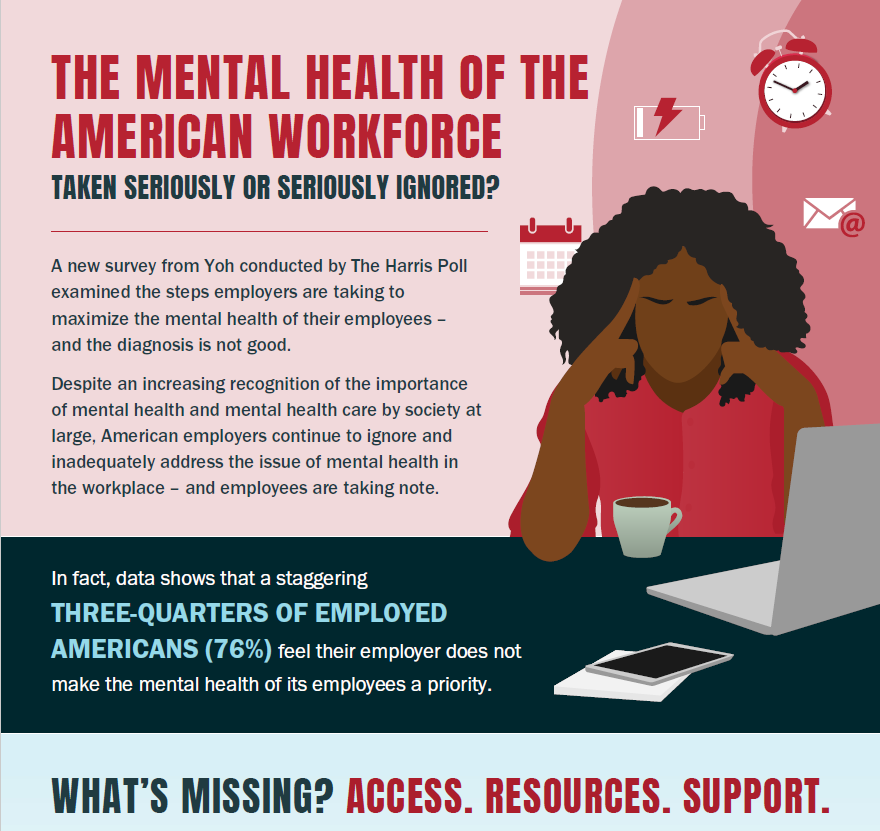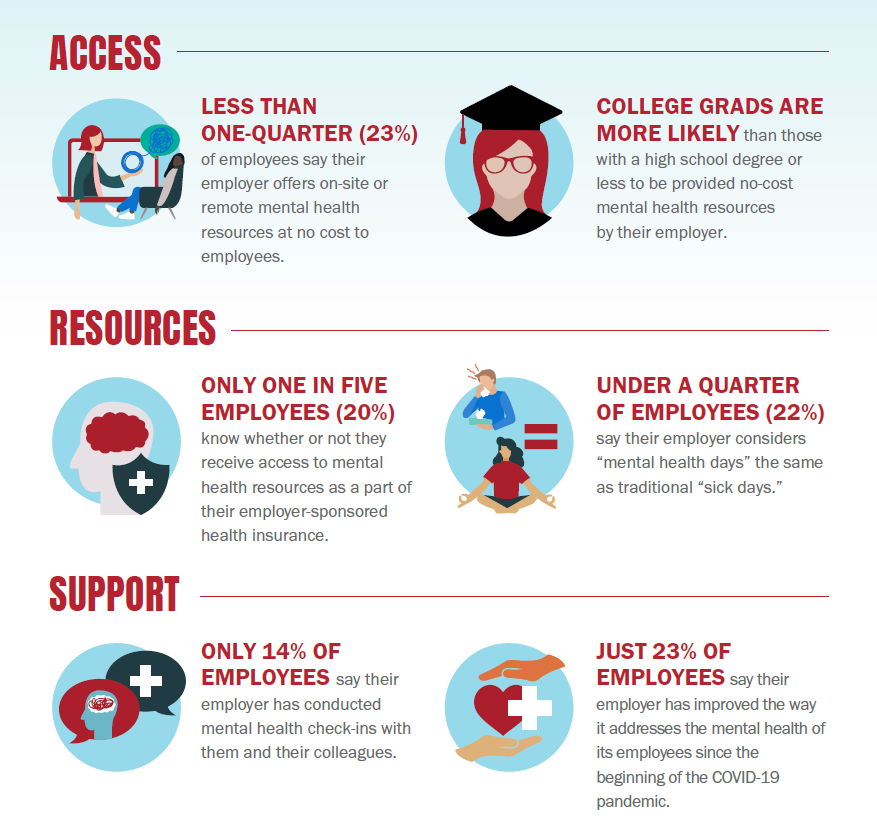%20Size%20Photos/GettyImages-1338931651.jpg?width=360&name=GettyImages-1338931651.jpg) The way the world collectively thinks about and recognizes mental health in and out of the workplace has changed following the pandemic. In a new survey from Yoh, data reveals that a staggering three-quarters of employed Americans (76%) feel their employer does not make the mental health of its employees a priority.
The way the world collectively thinks about and recognizes mental health in and out of the workplace has changed following the pandemic. In a new survey from Yoh, data reveals that a staggering three-quarters of employed Americans (76%) feel their employer does not make the mental health of its employees a priority.
What's Missing?
The survey by The Harris Poll on behalf of Yoh included 993 U.S. adults ages 18+ employed full-time/part-time. Out of these participants, a majority feel that employers are not adequately addressing the issue of mental health in the workplace. What are employers missing that can better align them with their employees needs?
Access
A majority of employers may not offer much in terms of mental health resources. Less than one-quarter (23%) of employees say their employer offers on-site or remote mental health resources (e.g., access to an on-staff counselor or psychologist at all times, regular group therapy sessions, etc.) at no cost to employees.
Resources
Employees are often unaware of what mental health resources their employer offers. Only one in five employees (20%) know whether or not they receive access to mental health resources as a part of their employer-sponsored health insurance.
support
Not much has changed since the pandemic began. Just 23% of employees say their employer has improved the way it addresses the mental health of its employees since the beginning of the COVID-19 pandemic.
Here are the findings collected from Yoh's Harris Poll survey:


KEY DEMOGRAPHIC TRENDS
- Women have experienced higher instances of burnout than men. Among employed women, 28% say they have experienced burnout at least once since March 2020 (the start of the COVID-19 pandemic), while only 19% of employed men admit this.
- Higher-earning employees are more likely to say their employer has gotten better with addressing employees’ mental health since the start of the pandemic. Among employees with household incomes at $50,000 or less, 14% say their employer has improved the way it addresses the mental health of its employees since the beginning of the COVID-19 pandemic, compared to 26% of employees with household incomes between $50,000 and $74,999, 28% of employees with household incomes between $75,000 and $99,999, and 25% of employees with household incomes at more than $100,000.
- College grads are more likely than those with a high school degree or less to say their employer provides no-cost mental health resources. Among employed college grads, 28% say their employer offers on-site or remote mental health resources at no cost to employees, while just 16% of employees with a high school degree or less say the same.
a wake-up call for companies across industries
The increased conversations surrounding mental health makes it even more surprising that a majority of employees feel their mental health is being ignored by their employers. Yoh President Emmett McGrath notes that especially in the time of the Great Resignation, "those businesses that do not take the mental health of their employees seriously are not only losing out on potential talent but also risk losing their current staff to employers that do make it a priority."
To learn more about the importance of supporting the mental health of your employees, listen to our Back to Work podcast episode "Managing Social Anxiety in the Workplace".




